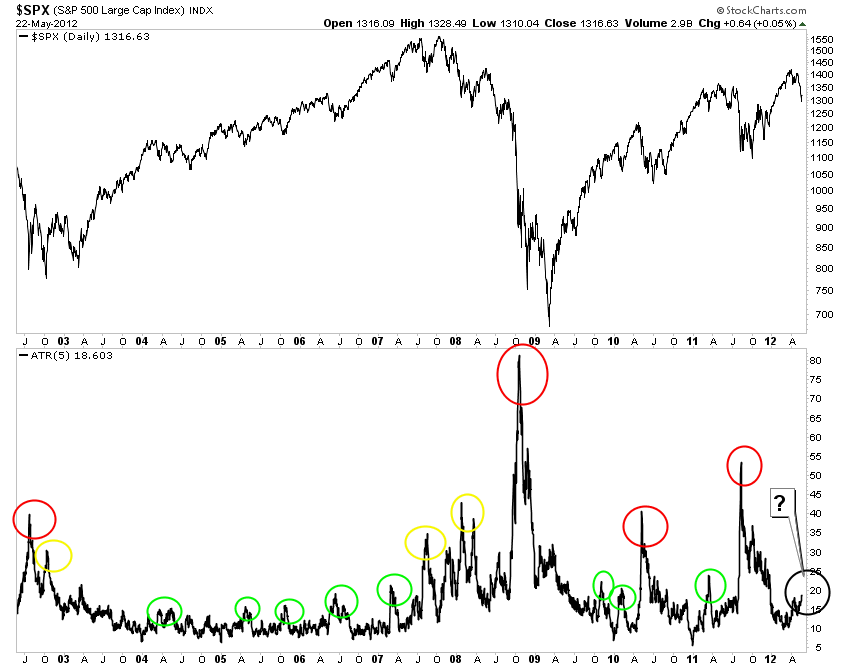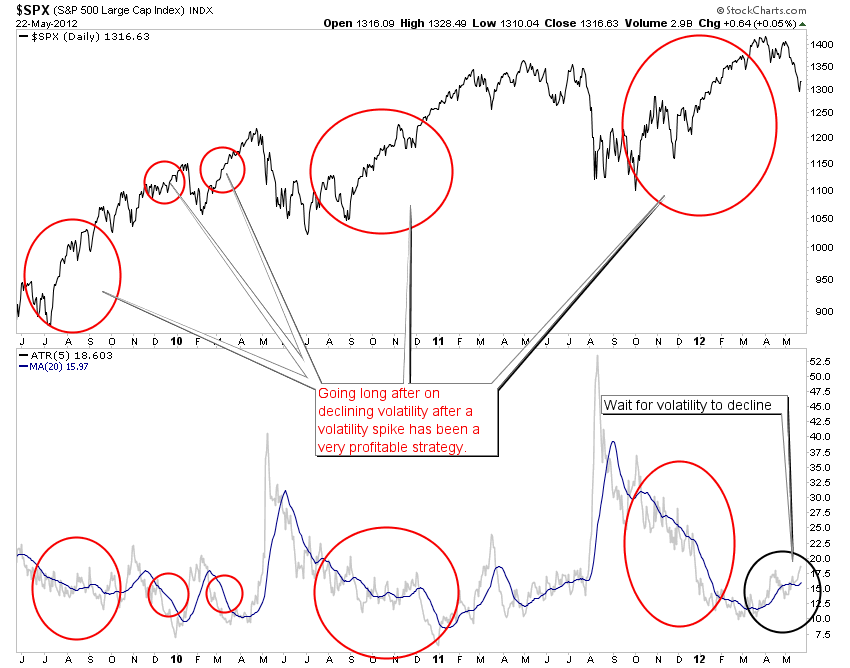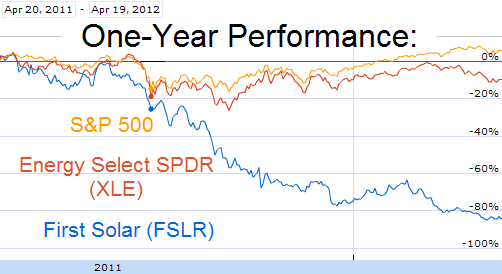by Michael Tarsala
 One of the best posts on market timing I have seen in a long time comes from Michael Arold, manager of the Technical Swing model.
One of the best posts on market timing I have seen in a long time comes from Michael Arold, manager of the Technical Swing model.
The upshot: Volatility helps you time big and meaningful changes in market direction.
And as it relates to the markets as they stand right now, it may be better to wait for the volatility to decline before getting aggressive with stocks again.

Source: Michaelarold.com
Above is a chart of the S&P 500, with the 5-day average true range volatility measure at the bottom. It’s a fairly simple measure of volatility based on the average size of daily trading ranges, including gaps. You’ll notice that volatility tends to reverse in the 20 to 25 range in a “normal”, correction, marked in green. Yet volatility in the “abnormal” corrections — in yellow and green — can climb far higher.
The thing is, you are unlikely to know what’s a normal correction and what’s abnormal until after the fact. Your odds of getting the direction right are far better, Arold says, if you wait for the volatility reversal. Moreover, there’s a potentially heavy penalty, and not much extra reward, for jumping the gun.
I’ll let Arold hammer home the point:
The good news is: you don’t have to make a prediction. In recent years, declining volatility has been a (necessary) condition for higher stocks prices ahead. As you can see from the following chart, a strategy, which went long after the volatility spike when the ATR started to decline would have been quite profitable. So one just has to be patient and wait for calmer markets before committing capital aggressively on the long side.
Source: Michaelarold.com
You can go here to check out Arold’s performance using his swing-trading strategies and his latest market moves, and here to find out more about his latest best idea.
We invite you to talk to us us to if you would like to take a free trial using $100,000 of fake money, or to commit real dollars to his model.




